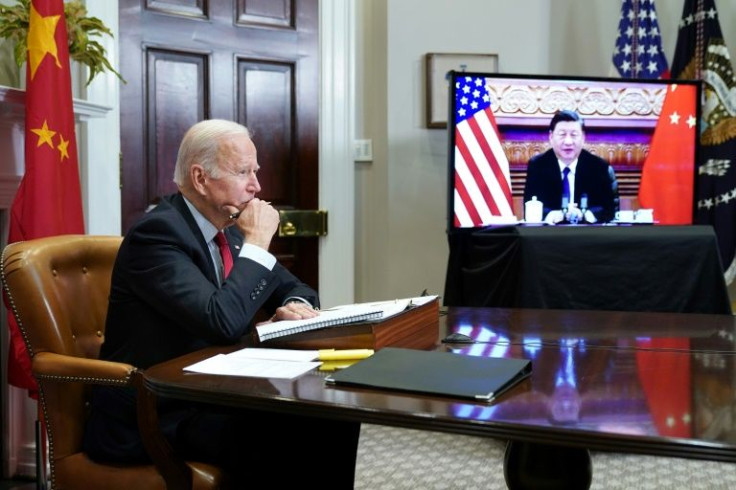Biden, Xi Agree To Plan Arms Control Talks: White House
US President Joe Biden and China's Xi Jinping agreed during their virtual summit to work on organizing talks between the nuclear-armed nations on arms control, a senior White House official said Tuesday.
Biden and Xi met via teleconference for more than three hours late Monday (early Tuesday in Beijing) in a bid to ease tensions between the world's top two economies and major geopolitical rivals.
"President Biden did raise with President Xi the need for a strategic stability set of conversations," National Security Advisor Jake Sullivan told a conference, using an expression employed in diplomatic circles to indicate arms control.
"The two leaders agreed that we would look to begin to carry forward discussions," he added, in comments made at the Brookings Institution think tank in Washington.
Sullivan, a top aide to Biden, had been asked about Beijing's increasing military might.

The Pentagon recently confirmed that China in August carried out a test of a nuclear-capable hypersonic missile that would be difficult to defend against, and has said that Beijing is expanding its nuclear arsenal more quickly than anticipated.
While the United States and Russia have had a formal strategic stability dialogue since the days of the Cold War, producing several disarmament agreements, that is not the case between Washington and Beijing.
Biden's predecessor Donald Trump repeatedly asked in vain that China be included in the US-Russian talks.
Biden, who took office in January, appears to be more interested in bilateral talks.
"That is not the same as what we have in the Russian context with the formal strategic stability dialogue that is far more mature, has a much deeper history to it," Sullivan said.
"There's less maturity to that in the US-China relationship, but the two leaders did discuss these issues and it is now incumbent on us to think about the most productive way to carry it forward from here."
© Copyright AFP 2024. All rights reserved.




















